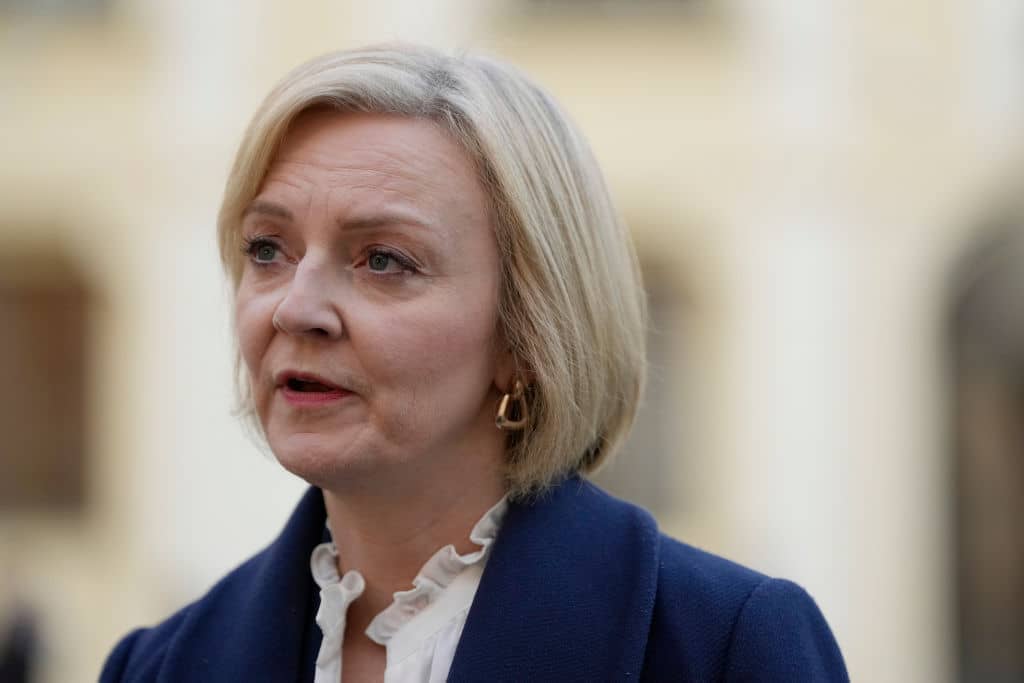James Carville, an ostentatiously aggressive adviser to Bill Clinton, once said that when he died, he wanted to be reincarnated ‘as the bond market – you can intimidate everybody’.
Carville and Clinton had learned something that a lot of people in UK politics seem to be overlooking. The bond market, where government loans (gilts, in the UK) are traded, can decide what governments can – and cannot – do. It can also determine whether governments survive.
But because bonds are boring and a bit complicated (yields go up as prices go down – what does that even mean? And what on earth is a yield curve?) they don’t get enough attention. The value of sterling is an easier concept to grasp, so it’s been getting more attention of late, but bonds matter more to Liz Truss and the electorate.
Two weeks ago, the people and institutions that own gilts started selling them, fast. That meant gilt prices fell and yields rose. Those yields help determine how much it costs everyone – households and companies – to borrow money. The increase in those yields is the reason a fixed rate mortgage now tends to come with a 6-something per cent handle, rather than 4-something.
The effect of higher mortgage rates will act like a rolling artillery barrage on household finances and Conservative poll ratings for months to come. That’s because every day, a few thousand more mortgage-holders hit the end of a fixed-rate term and have to agree a new deal.
The Bank of England is now all that stands between her government and another grievous beating from the gilt market
Quite a lot of people now seeking a new rate were previously paying 2-something per cent interest on their home loan. Guess how they might feel about 6 per cent?
To be more precise about numbers here, the indispensable analyst Neil Hudson calculates (using Bank of England data) that over the 12 months that started on 1st October, around 1.5 million fixed-rate mortgage deals will expire. Deals, that is, with interest rates of less than 2.5 per cent. Higher rates equal angrier homeowners.
Then there’s business, which borrows to spend and invest and grow. Higher rates equal lower growth.
Here, readers might recall that the Bank of England did something complicated and expensive-sounding involving gilts last week. Which is true, but not much consolation to households or Liz Truss.
On 28 September, the Bank said it was ready to buy £65 billion-worth of gilts in order to increase their price. It didn’t do this to support the pound or to reduce effective interest rates. It did this to support the balance sheets of pension funds. Note also that the Bank hasn’t actually spent anything like £65 billion, and that it gets gilts in exchange for any spending, so the operation only sounds expensive.
Regardless of the intent, the effect was a brief fall in yields (because yields move inversely to prices, remember). Thus came a glimmer of hope for homeowners and the PM that maybe, just maybe, the worst was over. Maybe markets would now calm, assuaged by a bit more detail on government fiscal plans and growth policies?
Maybe. But there’s no real sign of that yet. On Thursday, yields on thirty-year gilts were back above 4.3 per cent, the highest level since the Bank promised its intervention.
So what happens next?
The key date in British politics is now 14 October. That’s when the Bank has said its readiness to buy gilts will end.
Will yields then rise again, potentially pushing up mortgage costs higher for longer? It’s entirely possible. And remember that might not just be a problem for borrowers – it could well raise some terrifying questions about the health of big British pension funds.
What can stop that? Well, the government could persuade market participants that it really does have a credible plan to manage the public finances without fuelling inflation. Which frankly seems…unlikely.
The other thing that might hold yields down is the promise of yet more Bank intervention. Some very serious people in the City and Whitehall privately think there will be no alternative to this. They also note with some anxiety that no-one really knows the wider implications of the Bank propping up gilts on a long-term basis, or even if such a thing is possible.
What does all this mean for politics? Two things.
First, the fortunes of the Truss government are largely being decided away from Westminster, in the City and Canary Wharf and Mayfair where gilts are traded. Because in the end, the bond markets, boring as they seem, really are as big and scary as James Carville said. A prime minister who says she likes markets should fear this one. And Westminster types should get used to looking at bond price pages.
Second, the Bank of England, a body Liz Truss once described as failing and in need of an overhaul, is now all that stands between her government and another grievous beating from the gilt market. Turns out traditional institutions have their uses after all.







Comments